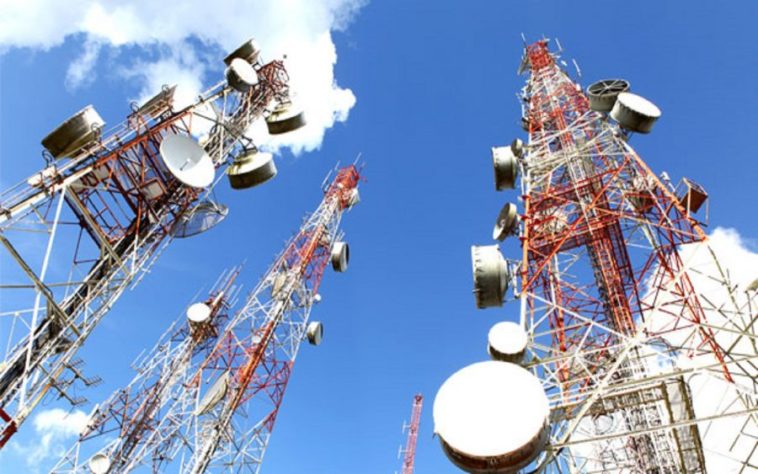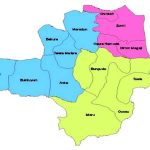Information, communication, and technology firms, including telecommunications companies in Nigeria, owed Deposit Money Banks N1.69tn as of September 2024 amid telcos’ calls for a hike in the tariff payable by subscribers for data and voice calls.
Figures obtained from the Central Bank of Nigeria’s quarterly statistical bulletin indicate that the indebtedness of the telcos and the other ICT firms represents a year-on-year decrease of N68.04bn, or 3.9 per cent, compared to the N1.77tn owed in September 2023.
The decline reflects the impact of the CBN’s repeated interest rate hikes, which has tightened monetary conditions and discouraged borrowing within the sector.
Month-on-month, however, there was a slight increase of N31.61bn, or 1.9 per cent, from the N1.66tn recorded in August 2024.
The year-on-year analysis shows that credit to the ICT sector experienced mixed trends throughout 2024.
In January, credit stood at N2.47tn, marking a significant increase of N1.23tn, or 99.3 per cent, compared to N1.24tn in January 2023.
However, by February, credit had declined to N2.35tn, though it still represented an 88.4 per cent increase year-on-year, with a difference of N1.10tn compared to February 2023.
By March, the pace of borrowing slowed further, with credit falling to N1.67tn. This represented a year-on-year increase of N385.24bn, or 30 per cent, compared to March 2023.
The trend continued into April, where credit remained relatively stable at N1.66tn, up N241.90bn, or 17 per cent, year-on-year.
In May, credit rose slightly to N1.68tn, reflecting an N308.38bn, or 22.4 per cent, an increase compared to the same period in 2023.
From June, year-on-year figures began to show a decline. Credit to the sector dropped to N1.64tn in June, representing a decrease of N81.59bn, or 4.7 per cent, compared to June 2023.
July saw a further decline to N1.69tn, down N48.93bn, or 2.8 per cent, from July 2023.
In August, the decline deepened, with credit falling to N1.67tn, a reduction of N107.37bn, or six per cent, compared to the N1.77tn recorded in August 2023.
By September, the year-on-year decrease of N68.04bn drew attention to the cautious borrowing stance adopted by firms in response to persistent economic uncertainties and high interest rates.
The decline in credit to the ICT sector throughout 2024 can be attributed to the CBN’s tight monetary policies, which have raised the cost of borrowing.
The apex bank has consistently hiked interest rates in a bid to curb inflation, with its monetary policy rate standing at a record high for most of the year.
CBN Governor Yemi Cardoso, who assumed office in September 2023, has overseen six interest rate hikes in 2024.
In February, the Monetary Policy Rate increased by 400 basis points, moving from 18.75 per cent to 22.75 per cent, the largest single hike of the year.
This was followed by another increase in March to 24.75 per cent. In May, the rate was raised again to 26.25 per cent, and by July, it reached 26.75 per cent.
The tightening cycle continued with an increase to 27.25 per cent in September, and the most recent hike in November brought the rate to 27.50 per cent.
These cumulative increases, totalling 875 basis points, are part of efforts to combat inflation and stabilise the economy.
This has had a direct impact on the borrowing capacity of firms, particularly those in capital-intensive sectors such as ICT.
Also, macroeconomic challenges, including exchange rate volatility and rising operational costs, have further constrained borrowing activity.
Despite these challenges, the ICT sector remains a critical driver of Nigeria’s economy, contributing significantly to Gross Domestic Product growth and employment.
Activities in the ICT sector contributed 16.35 per cent to Nigeria’s real GDP in Q3 2024, a decline from the 19.78 per cent it added in the previous quarter.
The National Bureau of Statistics disclosed this in the Q3 2024 GDP report.
The contribution was, however, higher than the 15.97 per cent contributed by the sector in the same period of last year.
According to the NBS, the ICT sector comprises the four activities of Telecommunications and Information Services: Publishing, Motion Picture, Sound Recording, and Music Production, as well as Broadcasting.
In the third quarter of 2024, the sector recorded a growth rate of 5.92 per cent in real terms, year-on-year.
This was driven largely by activities in the telecommunications sub-sector, which contributed 13.94 per cent to the GDP in the real term.
According to NBS, the telecom industry was the third-largest contributor to the real GDP in Q3 2024, coming behind only crop production and trade industries, contributing 26.51 per cent and 14.78 per cent, respectively.
The telecom industry, which is dominated by mobile network operators including MTN, Globacom, Airtel, 9mobile, and Internet Service Providers, is also driving a lot of activities in every other sector of the economy.
The closest sub-sector to telecoms in the ICT sector in terms of contribution was Broadcasting, which added 1.37 per cent.
The NBS data further revealed that the ICT sector contributed 11.30 per cent to the total Nominal GDP in the third quarter of 2024, lower than the rate of 11.57 per cent recorded in the same quarter of 2023 and lower than the 14.19 per cent it contributed in the preceding quarter.
In nominal terms, in the third quarter of 2024, the sector growth was recorded at 14.51 per cent (year-on-year), a 25.75 percentage points decrease from the rate of 40.27 per cent recorded in the same quarter of 2023 and 2.65 percentage points higher than the rate recorded in the preceding quarter.
Despite being a major contributor to the country’s GDP, the Nigerian telecommunications sector recorded an 87 per cent decline in foreign investments for the third quarter of 2024, marking a significant downtrend from the previous two quarters of the year.
The NBS data for capital importation showed that the sector attracted only $14.4m in capital importation in Q3, a sharp decline from the $113.42m investments recorded in Q2.
Year-on-year, the Q3 2024 capital importation for the telecom sector also represents a 77 per cent decline compared to the $64.05m recorded in the same period last year.
Despite the decline in the third quarter, the telecom sector has had better foreign investments this year than in previous years.
The NBS data showed that the sector attracted a $191.5m capital inflow in the first quarter of this year, marking a significant 769 per cent increase compared with $22.05m received in Q1 2023.
The investments recorded in the first quarter alone surpassed the total investments recorded by the sector in the full year 2023, which stood at $134.75m.
This came after years of consistent decline in investments, even with a gaping infrastructure gap requiring billions of investments to bridge.
In Q2 2024, FDIs in the sector stood at $113.4m. While this is lower than the inflow recorded in the preceding quarter, it represents a 339 per cent increase over the $25.81m capital inflow recorded in the same period last year.
Between January and September 2024, MTN Nigeria’s core capital expenditure dropped 27.79 per cent to N217.64bn, while Airtel’s capex fell 36.59 per cent to $149m.
This investment decline is tied to a N514.93bn loss between January and September 2024 for MTNN and a 46.9 per cent decline to $755m in Airtel Nigeria’s revenue in the period.
To adjust to these harsh economic realities, telcos renewed their push for tariff hikes this year.
According to the Association of Licensed Telecom Operators of Nigeria and the Association of Telecommunication Companies of Nigeria, telecom operators have advocated for higher prices for the last 11 years.
The telcos stressed the need for cost-reflective tariffs in the face of adverse economic headwinds like high inflation of 34.6 per cent in November 2024 and losses resulting from foreign exchange fluctuations.
However, telecommunications companies in Nigeria were mandated to increase their investments in network infrastructure following the approval of a tariff hike after 11 years of lobbying.
This follows an assertion by Bosun Tijani, the minister of communications, innovation, and digital economy, that tariff hikes will happen in the interests of the industry’s sustainability. “Tariff will go up,” he said.
The condition of this increase has been tied to a commitment by telcos to increase investments in the sector.





GIPHY App Key not set. Please check settings